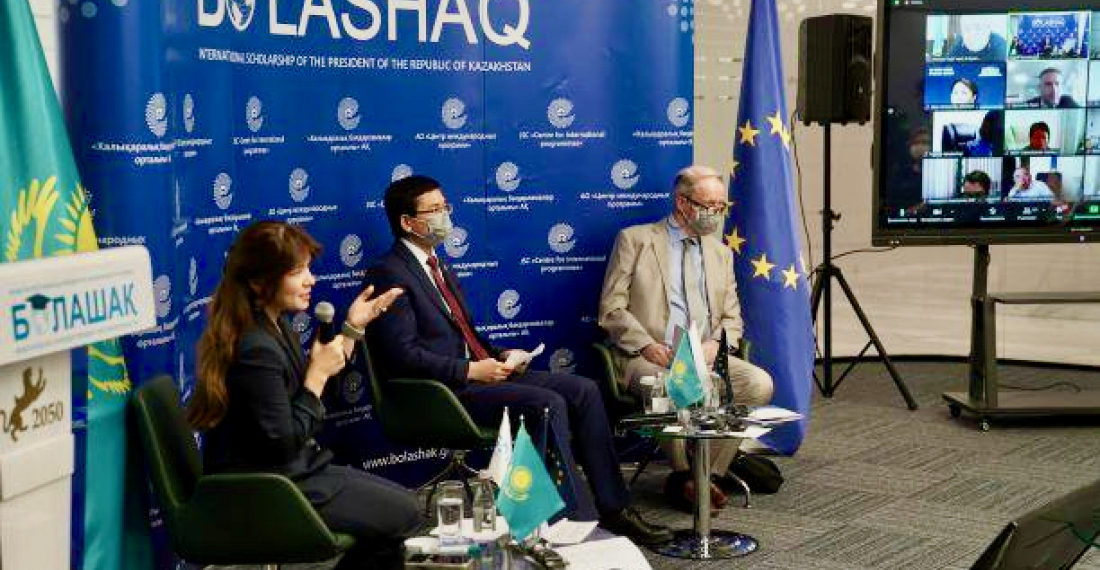Last Wednesday (30 June), the Ministry of Education and Science of the Republic of Kazakhstan, the Delegation of the European Union to Kazakhstan and “The Centre for International Programs” JSC held the first Kazakh-European Partnership Forum on education.
The Forum was attended by the Minister of Education and Science of Kazakhstan, Askhat Aimagambetov, the Ambassador of the European Union to Kazakhstan, Sven-Olov Carlsson, Ambassador-at-Large of the Ministry of Foreign Affairs Kazakhstan, Alexey Volkov, diplomatic personnel from 16 EU member states, and more than 60 representatives of Kazakhstan and European universities, and experts from academic community.
“Internationalisation has been the cornerstone of many national education reforms over the past four decades as a strategy for improving the quality of education and science. Kazakhstan also sees internationalisation as an important process, and the growing level of mobility of students and teachers, number of international programs and cooperation between universities at regional and global levels serve as a proof thereof”, said Askhat Aimagambetov.
The participants discussed global trends in the development of higher education in the face of new challenges, as well as the issues of expanding internationalisation, and identified vectors for the further development of academic cooperation between universities of the Republic of Kazakhstan and the European Union.
“The EU welcomes the initiative of the Ministry of Education and Science of Kazakhstan and Centre for International Programmes to attract the attention to current status quo of the presence of EU educational institutions in Kazakhstan’s foreign education programmes such as International Scholarship Programme Bolashaq. With a great potential of educational system of European Union Member States’ it is important for European Union and Kazakhstan to cooperate and look for a new directions of collaboration” – EU Ambassador to Kazakhstan Sven-Olov Carlsson.
The EU ambassador also noted that in the space of 27 years of “Bolashak” international program implementation, more than 11,000 highly qualified specialists have been trained, who now contribute to the development of the country. The “Bolashak” scholarship is awarded to study at the world’s leading universities included into the List of Recommended Universities, which this year includes 207 leading universities in the world, 59 of which are located in 14 European countries” - noted Ainur Karbozova.






